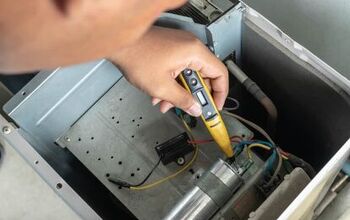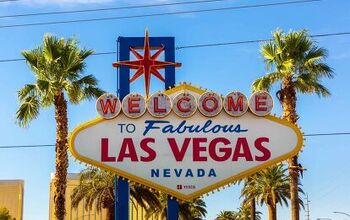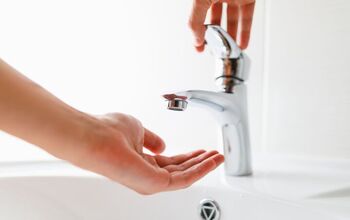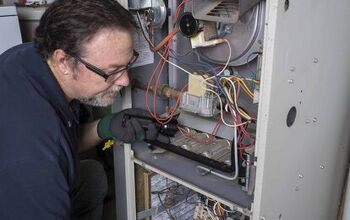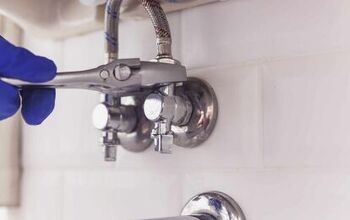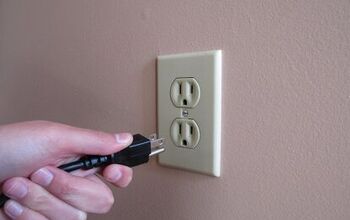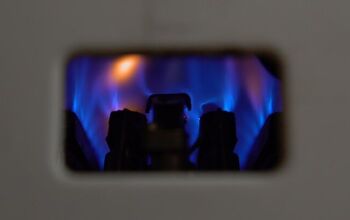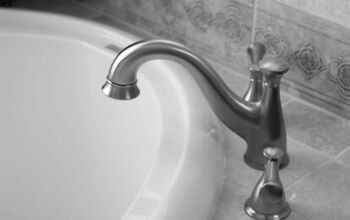Can You Convert A Natural Gas Water Heater To Propane?
Are you building your new home from the ground up, or considering installing a new water heater? The variety of options and safety protocols can be overwhelming. You should consider the current pipelines and tanks on your property before making changes.
Do you already have a natural gas line to your home? In this case, maybe you’re wondering if you can convert your current natural gas heater to a propane heater. We’re going to discuss whether this is possible to do.
Unfortunately, you CANNOT convert a natural gas water heater to propane. A natural gas water heater can only use natural gas for its energy source. Propane water heaters require different pipe sizes and orifices, and a propane storage tank. If you’d prefer a propane heating system over natural gas, you will need to get the correct water heater and gas lines installed.
Do You Need Water Heater Installation or Replacement?
Get free, zero-commitment quotes from pro contractors near you.

What is a Water Heater?
A water heater is a piece of equipment that utilizes either gas or electricity to heat up the water in your home. The two most common water heaters are metal tank heaters or tankless heaters. A metal tank heater is the most prevalent and more affordable than a tankless system, but it takes up a significant amount of space and has a shorter lifespan.
There are three primary forms of energy water heaters can use to heat water:
- Propane. Propane is an efficient, environmentally friendly fuel source. Local propane companies can supply it in most places. It requires a separate storage tank on the property, and regular fuel service from a propane company.
- Natural Gas. Natural gas can be piped into homes via underground lines. It’s only available in certain locations, but is often considered the most cost-effective gas.
- Electric. An electric water heater works in the same way as gas heaters. It brings cold water through the dip tube, and heats it up using electric components inside the tank. Then the hot water rises in the tank and travels through the heat-out pipe to the rest of the home.
Propane vs. Natural Gas Water Heater
By now, you know that you cannot convert a natural gas water heater to propane. It is extremely dangerous to attempt this on your own, and even professionals do not generally perform such a conversion.
You may currently have a natural gas water heater, and for whatever reason are considering switching to propane. If this is the case, explore the primary differences between natural gas and propane water heaters before deciding on next steps.
Propane Water Heater
Propane is a gas condensed as a liquid. It is often referred to as liquid propane (LP). This gas is nontoxic, colorless, and naturally odorless. Natural gas processing creates propane as a byproduct, but it can also be produced from crude oil refinement. Propane is primarily used for water and home heating, as well as fuel for appliances.
A propane water heater comes as either a tank or tankless fixture. Technicians typically install the tanks in a laundry room or basement. These tanks store and heat the water. Propane storage tanks are separate tanks that store the propane itself. Homeowners must have these installed either outside or buried underground. Tankless water heaters require electricity, but they don’t require a massive tank and only warm the water as needed.
If you switch your system from natural gas to propane, there are a few things you will need. First, you will need the proper sized gas lines. The underground piping installed for natural gas is generally bigger in size than what’s needed for propane. You will also need a propane tank on your property to store the gas. This will involve regular fueling visits from the local propane company.
Natural Gas Water Heater
A natural gas water heater is very similar to a propane water heater, only it uses natural gas for its fuel. Natural gas is a fossil energy source, a naturally occurring hydrocarbon gas mixture primarily consisting of methane.
A natural gas water heater is more cost-effective than electrical options. Natural gas is very affordable (even cheaper than propane), and doesn’t require regular fuel-ups from propane companies. They are also more environmentally friendly than burning oils to heat your home. But keep in mind, the process of natural gas extraction still has a negative impact on the environment.
In addition, natural gas is not always available, depending on where you live. If it is available in your area, it may be wise to opt for this option over propane, as it tends to be cheaper than propane.
Pros and Cons of Propane Water Heaters
Do you still want to change your natural gas system to propane? Explore the pros and cons of switching over to this energy source.
Pros
- Delivers more BTUs than natural gas.
- Heats water more efficiently, burning half the amount that natural gas does to heat water to the same temperature.
- Is usually available, even when natural gas isn’t in your area.
- For smaller appliances like fire pits and stoves, it may be cheaper than natural gas.
- Nontoxic to the environment as a clean burning greenhouse gas.
Cons
- More expensive per gallon than natural gas (averages $2.50 a gallon).
- Higher risk of explosion than natural gas.
- Requires a propane storage tank on your property.
- Must purchase a whole new water heater (if you currently have a natural gas heater).
- Uses a smaller size of pipe than natural gas.
- Requires regular fueling visits from a propane company.
Related Questions
Why are natural gas prices rising?
Natural gas prices have nearly doubled in the year 2021. Many factors are influencing this skyrocketing cost, including economic demand bouncing back as the pandemic slows its pace. Also, serious environmental initiatives have encouraged corporations to move away from coal-powered fueling toward natural gas energy.
What is a tankless water heater?
The primary difference between a tank and tankless water heater is that the tankless heater only warms the water on demand. They do not require a storage tank, thus avoiding the unnecessary heat loss tanks can contribute to. A tankless water heater is more expensive than a traditional tank, but it lasts years longer.
Do You Need Water Heater Installation or Replacement?
Get free, zero-commitment quotes from pro contractors near you.

Conclusion
It’s important to be realistic about your expectations and financial flexibility when considering fuel changes. Ask yourself these questions: is your home currently outfitted for natural gas? Are there natural gas lines already installed beneath the ground? Do you already have a working natural gas water heater? It will make the most sense to keep your system as is.
Switching over to propane heating will require some serious costs. You will need a propane tank, a new water heater manufactured for propane, possibly new gas lines, and regular propane company fueling services to your home. In addition, natural gas is generally much more cost-efficient. If you stick with natural gas, you might save hundreds each year when compared to propane.
More by Jessica Vaillancourt



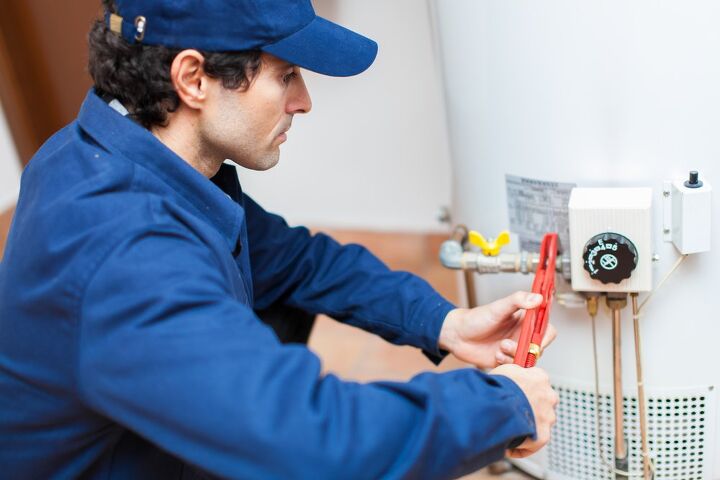







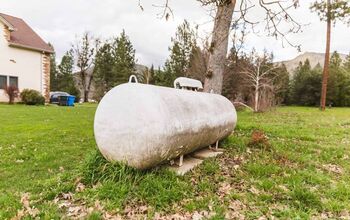
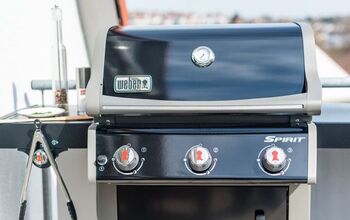
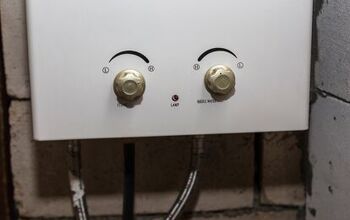
![The 10 Best Table Saws - [2022 Reviews & Buyer's Guide]](https://cdn-fastly.upgradedhome.com/media/2023/07/31/9070645/the-10-best-table-saws-2022-reviews-buyer-s-guide.jpg?size=350x220)

![How To Reset A Whirlpool Cabrio Washer [In 5 Easy Steps!]](https://cdn-fastly.upgradedhome.com/media/2023/07/31/9076531/how-to-reset-a-whirlpool-cabrio-washer-in-5-easy-steps.jpg?size=350x220)
